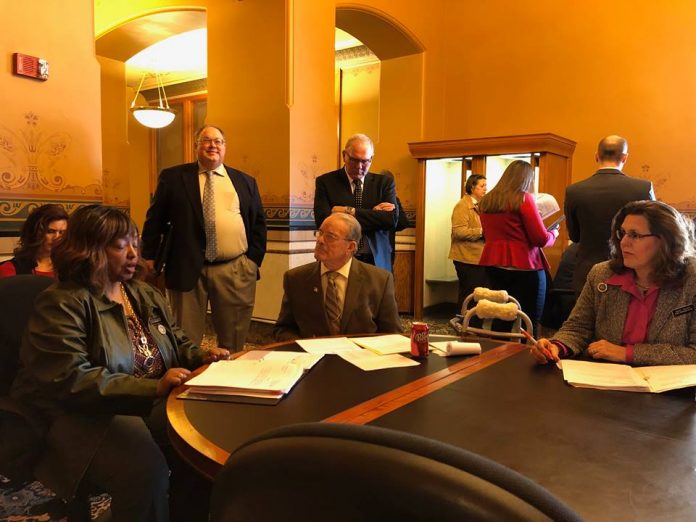House File 429 was signed out of subcommittee by Republican Reps. Tedd Gassman and Sandy Salmon. It’s a bill that would promote parental rights in education and require parental permission for a school to include children in a program on human growth and development as well as attending conferences that deal with human growth and development.
Currently parents are allowed to opt out, but this bill would reverse that, and require them to opt-in.
Emily Piper of the Iowa Association of School Boards spoke against the bill.
“We think this goes beyond what is necessary,” Piper said. “We think schools already do a very good job of keeping parents informed of both the curriculum and the additional opportunities there might be with respect to human growth and development.”
Jamie Burch of Planned Parenthood expressed opposition as well.
“This is not really a necessary step we need,” she said. “It could inadvertently leave some students out if you think about kids forgetting permission slips or parents being unable to sign permission slips because they’re working multiple jobs or not always available. Parents may lose the permission slips. This just creates unnecessary barriers to Iowa students just trying to get some education.”
Abigail Nelson of One Iowa Action also expressed concern, saying they agree it creates unnecessary barriers for student to receive sexual health education. If students don’t receive the information from school, they’ll turn to friends and the Internet, they said.
“This is just creating an unnecessary barrier that causes students to lose access to education,” Nelson said. “It takes a step out of the way for some parents. We think this bill is a solution that is seeking a problem. It doesn’t approve education, it doesn’t approve parental involvement.”
Bradley Hudson from the Iowa State Education Association asked what would be next — requiring parents to opt-in for history because they don’t like something about history.
“The experience we’ve had is a small group of people who want to exclude their children,” he said. “This is just putting extra workload on the districts. It seems like it is geared toward one — maybe two conferences. This is going down the wrong way.”
Rep. Salmon, who authored the bill, said it is a good bill.
“It gives parents a chance to take a look at what’s being taught and choose whether or not they want their children to be involved,” Salmon said. “Sex education is a very important part of a child’s identity and parents need to be involved.”
Democrat Ruth Ann Gaines said if parents are going to have these issues, they shouldn’t have their kids in public school.
“If you have enrolled your child in public education, then you are in agreement with rules approved by the Department of Education,” she said. “If you have, to me, a narrow perspective on what it is that your child should be exposed to, you would go to homeschooling or private schooling where you wouldn’t have to worry about it.
“If you’re going to go the extreme to have every child’s parent give some kind of opening for a child to take it, then I don’t think they need to be in the public school. They can be somewhere else.”
Rep. Gassman said he likes the idea of the bill.
“I think the parents are the No. 1 person that we should be listening to when we come to sex education,” Gassman said. “It’s not the school’s responsibility in my opinion to teach our kids about sex — that’s the parent’s responsibility.”
Gassman said he knows there are kids living in homes that are not ideal, but he’s hopeful a guardian is able to lead them in the right direction in that respect.
“I’d disagree here with Brad,” Gassman said. “I don’t think anybody is going to want to come back and take kids out of history. I’m all for what Ruth said in a way, if we could give our kids money to attend private or parochial schools, I’d be all for that. Some children, some parents don’t have the money to go to that parochial private school. To me it is the parents that are the important part of this, not the school.”












